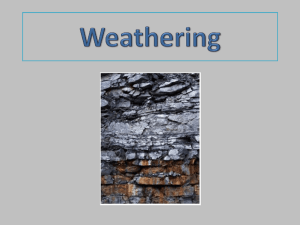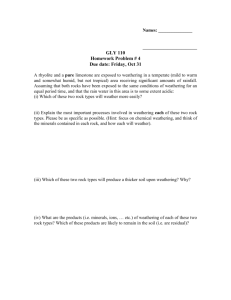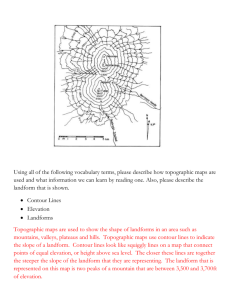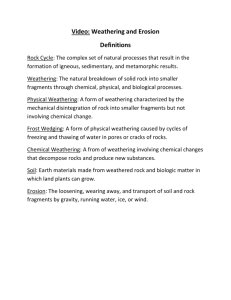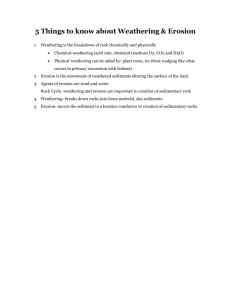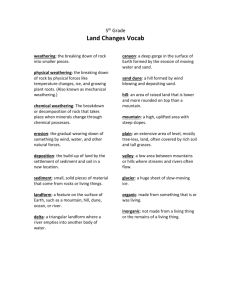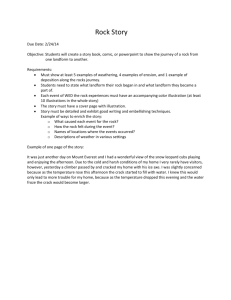Freeze-Thaw
advertisement
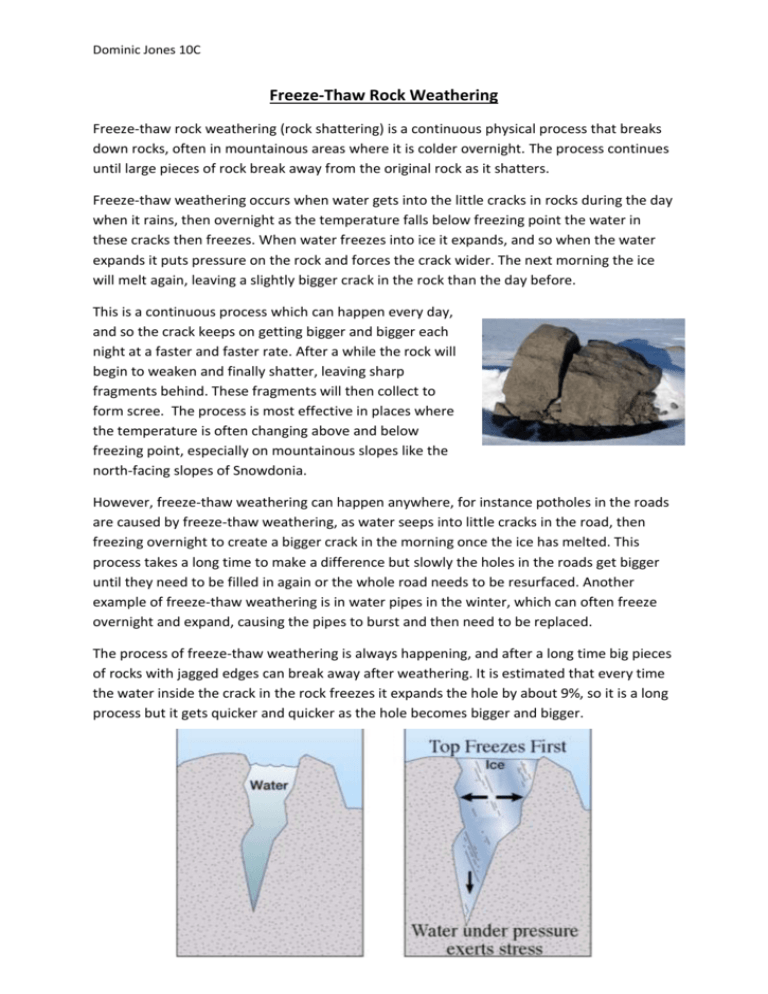
Dominic Jones 10C Freeze-Thaw Rock Weathering Freeze-thaw rock weathering (rock shattering) is a continuous physical process that breaks down rocks, often in mountainous areas where it is colder overnight. The process continues until large pieces of rock break away from the original rock as it shatters. Freeze-thaw weathering occurs when water gets into the little cracks in rocks during the day when it rains, then overnight as the temperature falls below freezing point the water in these cracks then freezes. When water freezes into ice it expands, and so when the water expands it puts pressure on the rock and forces the crack wider. The next morning the ice will melt again, leaving a slightly bigger crack in the rock than the day before. This is a continuous process which can happen every day, and so the crack keeps on getting bigger and bigger each night at a faster and faster rate. After a while the rock will begin to weaken and finally shatter, leaving sharp fragments behind. These fragments will then collect to form scree. The process is most effective in places where the temperature is often changing above and below freezing point, especially on mountainous slopes like the north-facing slopes of Snowdonia. However, freeze-thaw weathering can happen anywhere, for instance potholes in the roads are caused by freeze-thaw weathering, as water seeps into little cracks in the road, then freezing overnight to create a bigger crack in the morning once the ice has melted. This process takes a long time to make a difference but slowly the holes in the roads get bigger until they need to be filled in again or the whole road needs to be resurfaced. Another example of freeze-thaw weathering is in water pipes in the winter, which can often freeze overnight and expand, causing the pipes to burst and then need to be replaced. The process of freeze-thaw weathering is always happening, and after a long time big pieces of rocks with jagged edges can break away after weathering. It is estimated that every time the water inside the crack in the rock freezes it expands the hole by about 9%, so it is a long process but it gets quicker and quicker as the hole becomes bigger and bigger.
